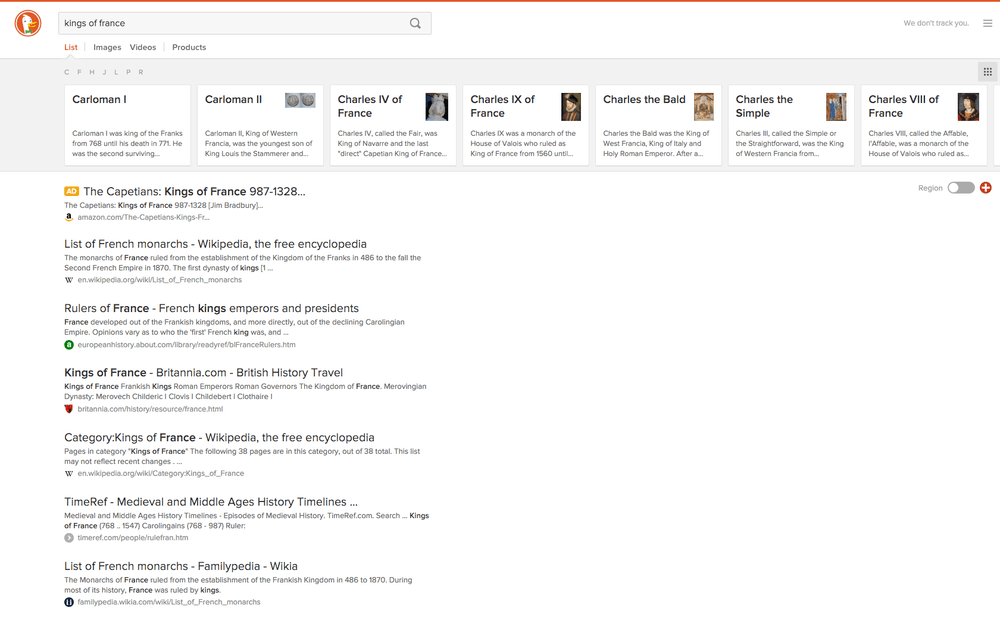Searching rather than Googling?
Google has a monopoly on the language of ‘search’. When referring to research on the internet do you ask students to do ‘a search for…’ or do you ask them to ‘google ...’?
The Google search engine is definitely a very useful tool that can be used effectively and efficiently with the correct approach. However there are alternatives tools with which information can be found. The use of these alternatives is well worth exploring with your students. Such an activity would link to the ‘evaluate and select digital information sources based on the appropriateness to specific tasks’ or ‘reflect critically about how information is collected, reshaped, and shared online’ standards within the Technology for Learning Framework.
Three alternatives that are worth exploring are Bing, Wolfram|Alpha and DuckDuckGo. Below I have provided some links, a brief outline of what they are and their pros and cons. I have also shown the results for the ‘kings of france’ should you use each to search.
bing
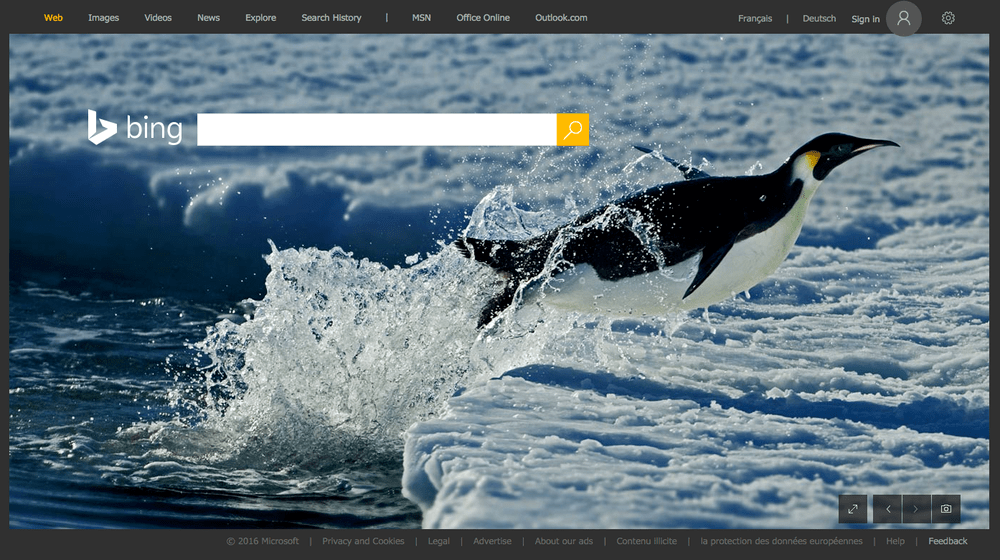
What is it? Microsoft’s search engine.
Pros:
- The ‘image search’ is well developed in terms of easy access to various search filters such as ‘Date’ and ‘License’.
- Teaching point: with students - try a search in both bing and Google - which gives the best result for the type of information you are looking for? Which is the best tool for the task you are doing?
Cons:
- It is weakened by the fact that it doesn’t have as many users as Google. This leads to less optimised results, more spammy and irrelevant results.
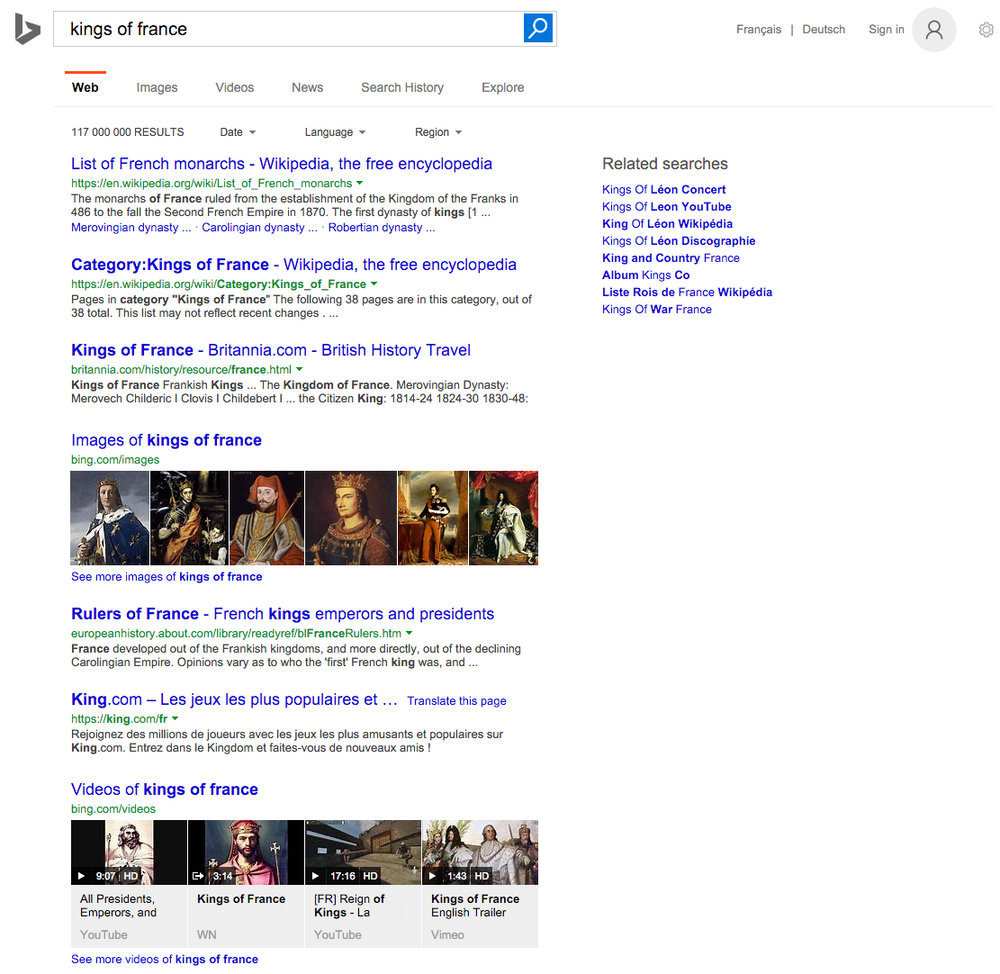
WolframAlpha
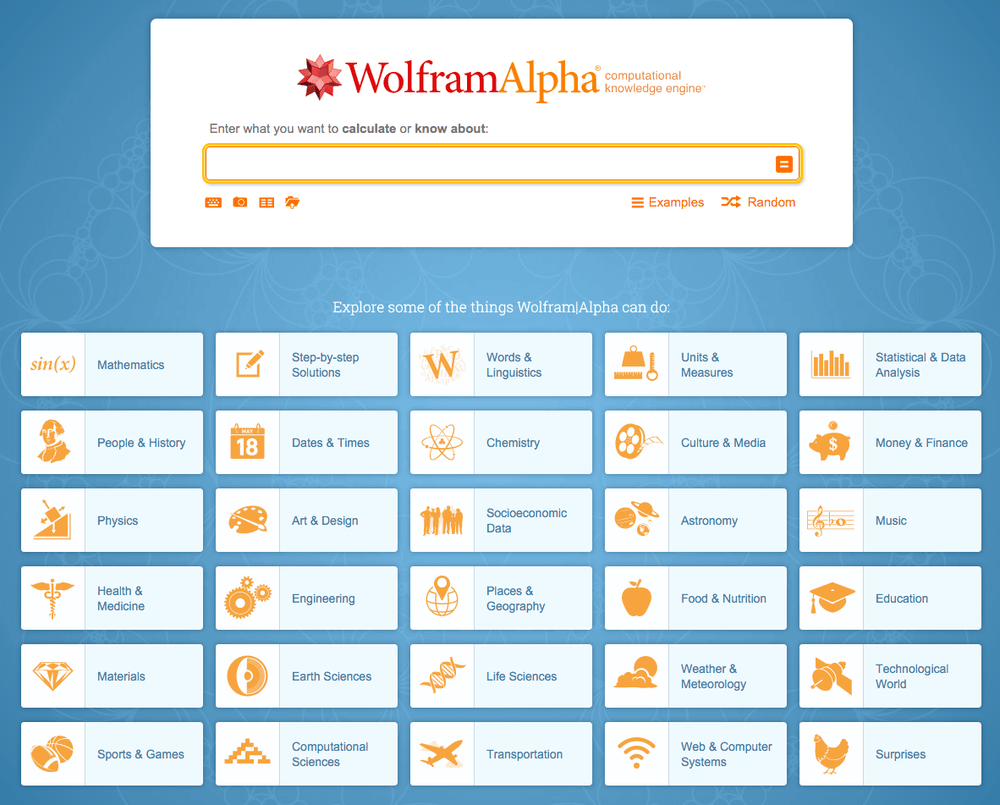
What is it? ‘A computational knowledge engine’... so it not a search engine but more of an ‘answer engine’ looking at it’s own databases for the answers. It relies on licensed databases and content entered, tagged and catalogues by Wolfram Research employees.
Pros:
- For getting ‘data’, calculations, conversations and localizations.
- There is a whole range of suggestions on the homepage - have a play and reflect on how it may be useful for the subject you teach.
Cons:
- If the data isn’t there - it can’t find it. It is not a search engine.
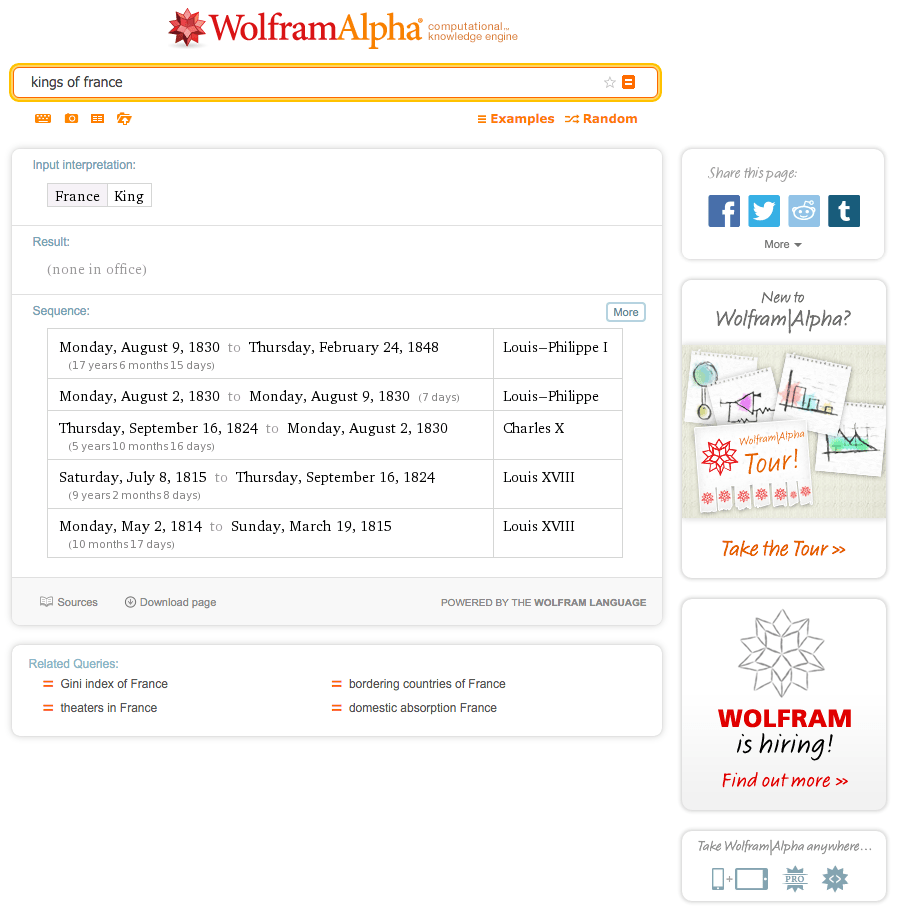 DuckDuckGo
DuckDuckGo
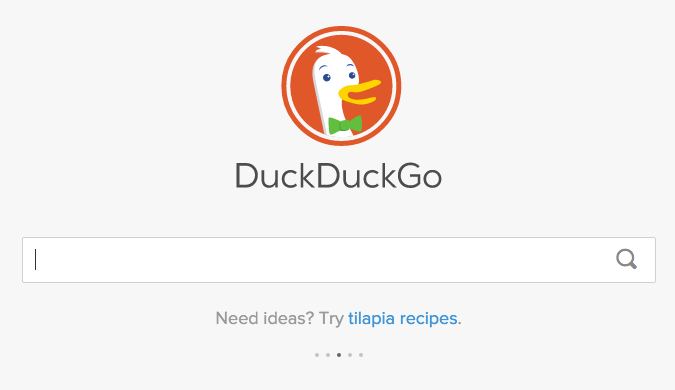
What is it? It is an anonymous search engine - it does not keep track of your searches. DuckDuckGo aggregates results from Bing, Yandex and other engines and displays them privately to the 'searcher'.
Pros:
- They have a strict one-add-a-page revenue model.
- Teaching point: with students - try a search in both DuckDuckGo and Google - which gives the best result for the type of information you are looking for?
- Teaching point: discuss with students the pros and cons of not being tracked by your search engine.
Cons:
- There are no personalized results. Like bing it lacks the number of users that Google does and therefore the benefits all that ‘knowledge’ and ‘patterns’ brings.
